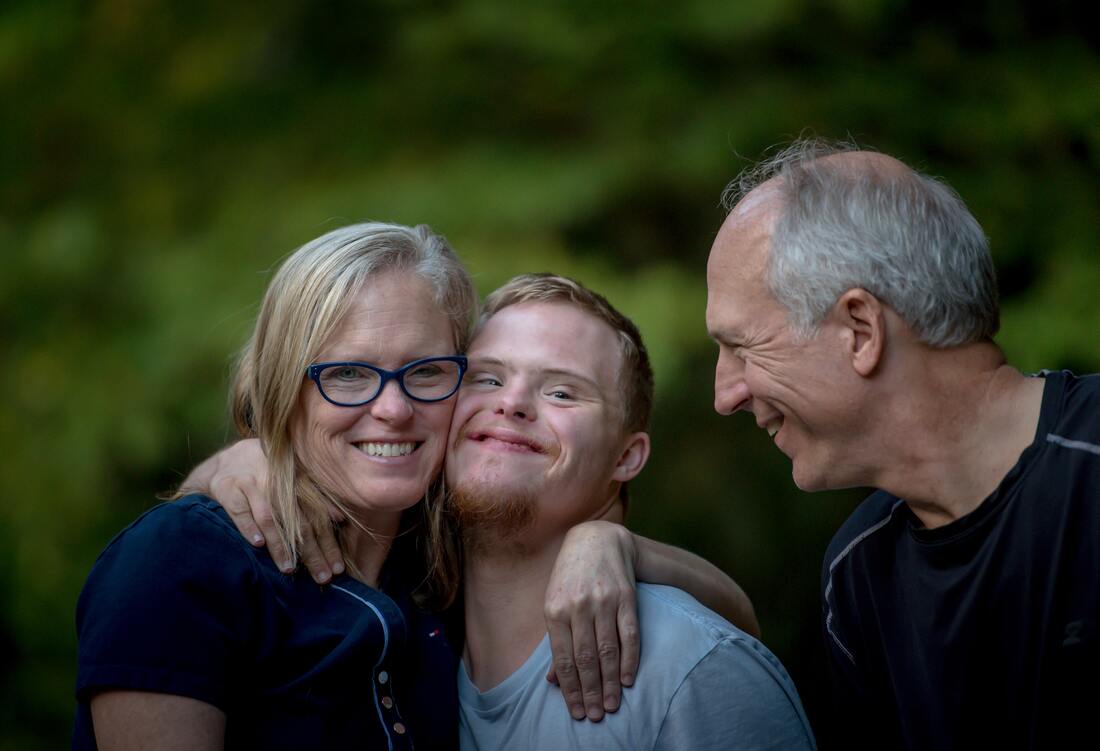Hoping you and your family remain well and contented.
|
In these strange times, this is the best advice I've seen to help you and your family manage anxiety. Please check out Eileen Feliciano's List.
Hoping you and your family remain well and contented.
0 Comments
Most people experience a slump in January and February after the frenetic end-of-year and new year festivities. Some of this is merely fatigue but the Winter Blues can leave you feeling, sad, irritable, unmotivated. If these feelings intensify and lead to sleep problems, changes in appetite or weight, depression, you may be experiencing Seasonal Affective Disorder (SAD). If your symptoms are in the milder category of Winter Blues there are several things you can do to help yourself feel better.
This brief article from the Mayo Clinic provides more information and this article from The New York Times is also useful.
A report from Cornell University found that natural light in an office significantly improves health, wellness and productivity in workers. Just about everybody goes through stressful times at work. Projects pile up, you stay late and take work home with you and the flow of emails doesn’t slow down. When this becomes the norm, it’s time to re-evaluate your work-life balance and make some healthy changes to avoid job burnout.
How do you know when it’s time to examine how your job fits into your life?
Become a Time Realist as this article from The NY Times says. Here's some information from the Cleveland Clinic about the illusion of multitasking. The Dead of Winter Can Leave You Feeling Depressed
More than 300 million people worldwide suffer from depression, according to the World Health Organization. Twice as many women than men have depression, and all ages are affected. Depression is especially important to recognize in pregnant or postpartum women, patients who are elderly or have cancer and in children and teenagers, as it can often be overlooked and can lead to devastating consequences. At its worst, depression can lead to suicide, with more than 800,000 people dying of suicide every year. Notably, people who have gone through unemployment, loss of a loved one, a divorce or separation or even suffered a heart attack can become depressed. Depression also runs in families, so it’s important to know your family history of mental illness. When patients with depression go to their doctors’ offices, two-thirds will present with symptoms such as a headache, backache or another type of pain, rather than admit they have depression. Often, it takes a direct question, such as “are you depressed?” for it to be recognized. Common symptoms of depression The following symptoms are typically present for at least two weeks, and depending on the number of symptoms, one can classify depression as mild, moderate or severe:
The more we understand and talk about depression, the earlier we can recognize it in our friends, families and loved ones. And for someone who’s suffering from this very real and debilitating disease, talking with a doctor can be the first step toward recovery. Here's an article from The NY Times naming depression a chronic disease such as cancer which can go into remission but can ultimately be a fatal disease. Treatment for depression Treatment depends on the severity of the symptoms. It can range from simple recognition of the disease to medications and, sometimes, admission to a hospital for intensive treatment. Many patients with depression benefit from counseling and behavioral therapy. Regardless, neither counseling nor medications work instantly. It can take up to two weeks to begin to see the beneficial effects of medicine and up to four weeks to see the beneficial effects of counseling. People with depression have a lower quality of life and a higher risk of suicide than those without depression. Additionally, depressed patients affect the quality of life of those who live and work with them. Recognizing the symptoms of depression and identifying ways to manage and alleviate it can have a profoundly positive impact for the patient and his or her loved ones. This post is based on one of a series of articles produced by U.S. News & World Report in association with the medical experts at Cleveland Clinic. Taking time to meditate might sound like a luxury but it may be as important for your well-being as pounding the treadmill or eating broccoli. And you don’t have to block off lots of time, either. Setting aside just a few minutes a day can improve your focus, and calm your mind and body.
If you’re a meditation skeptic, take a look at these four meditation myths that could (literally) change your mind. Meditation myth #1: You have to practice at least 20 minutes every day. Do you have a minute? Great! Then you have time to meditate. Here's a one-minute mindfulness meditation. Breathe in for five seconds, then breathe out for five seconds. That’s your warm-up. Then repeat for one minute. It’s that simple, and you can work up from there. Meditation myth #2: You need to clear your mind. Can’t get your to-do list out of your head? It’s OK if it keeps coming back. The goal of meditation is not to clear your mind of all thought. The goal is to return to the breath. Each time you discover your mind has wandered, return it to the breath. That is how your mind learns to benefit from meditation. When you’re meditating and get distracted by a thought return your attention to your breath. You’ll increase your awareness of the present moment, creating calm and balance. Meditation myth #3: It doesn’t do anything. It’s true, meditation doesn’t do one thing for you- it does a lot of good things! Research suggests that meditation appears to boost whole-body wellness.
And you don’t have to stick with one type of meditation. Play around until you find one you like, or use a combination of techniques. You can even use several types of meditation during one session. You can meditate in your car before leaving for work, while your children nap or even while you’re washing the dishes. Try to find a few minutes during your day to develop your meditation skills. You’ll be joining the 18 million American adults who use meditation to boost health and focus the mind. And you just may find that meditation gives you a little sanity in a sometimes crazy world. This is adapted from an article posted by the Cleveland Clinic, February 2019. This article is the best I've read about how our vulnerability is the gateway to the intimacy and love we crave.
Persistent relationship stress takes a toll, both emotionally and physically.
Every couple squabbles over finances, parenting, who does household chores, etc. But constant, unrelenting conflict can take a toll on both parties’ emotional and physical health. The quality of a relationship is important to a couple’s quality of overall health You might notice common signs of stress when your relationship has hit a rough patch: headaches, irritability, stomach issues, muscle tension, changes in sleep patterns. If that persists and you have unremitting stress your immune system can become compromised and you are vulnerable to many potential physical problems. Some studies have linked relational conflict and depression to poor digestive health. Others suggest that strained relationships may be connected to an increased risk for heart disease. Stress is also linked to high blood pressure and cancer. This mind-body connection is well known among researchers and physicians. The impact on health is greatest when relationship stress becomes chronic. Stress, in general, produces a “fight or flight” response that is designed to help in emergencies. If it's constantly activated, the entire body’s internal balance can be disturbed. Continual stress can cause an increase in cortisol which can damage the heart muscle. The longer the time conflict persists over the course of months versus weeks, the more likely you are to experience some physical symptoms, Couples counseling can help you learn to create an atmosphere of emotional safety for yourself and your partner, to take responsibility for stress relief so your nervous system shifts into “rest and digest” mode and all mind/body systems can function optimally. Here are some misconceptions about Couples' Therapy published by The Gottman Institute. From the Cleveland Clinic, Signs You May Need Couples Counseling. Happiness is a transitory state usually resulting from accomplishments, unexpected gifts and "happy" events, once in a lifetime occurrences. Rather than seeking happiness pursue joy. There are small moments within each day that can lift your heart, such as, the glimpse of a loved one, the memory of past joys, a budding flower, a kind interaction. To use an over-used word, mindfulness can put you in touch with the tiny joys which present themselves through your surroundings; the beauty of nature, a well-done exercise routine, a hot shower, the aroma of fresh baking, favorite music, a delicious meal and connections with other people. The list is endless if you pay closer attention to your senses; the sights, sounds, smells, tastes and touches within easy reach. Becoming more conscious of the tiny joys around can habituate you to perceiving things differently, to gathering the pleasantries within even the grayest day and lead to a steady state of contentment. Then you don't have to wait for the happy events to come along. You have many joys whenever you tune into your senses to experience the present. Here are some easy steps to help focus on the joys around you.
The Cleveland Clinic has this list of 7 Secrets to Happiness. Having one of those days when it seems like everything that could go wrong, did? You needn’t give in to grouchiness or despair. Here are six suggestions to help turn your day around.
1. Be mindful of your feelings. What feelings are beneath your stress and frustration: anger, sadness, anxiety, resentment? Research shows that knowing and naming your feelings is helpful and soothing. Once you’ve identified your feelings, write them down or talk them out with someone you trust. 2. Get up and move. In order to shake off a bad day, you need to be active. Sitting still gives your feelings time to fester. Exercise and activity produce endorphins and serotonin. Just 20 minutes of physical activity will increase these natural mood-lifters and give a noticeable boost to your day. You don’t have to spend hours in the gym to enjoy the benefits of exercise. Play fetch with your dog, walk outside with a friend at lunch, take a bike ride through the park. 3. Do something you love. Distraction can be a blessing. Watch a favorite movie, listen to music, work on a craft project, plan a vacation. If your passion involves physical exertion (hiking, running, kayaking, etc.), all the better. Avoid judging yourself or having strict standards. Enjoy the experience. Try to lose yourself in it. If you can’t completely set the anger, depression or anxiety aside, don’t worry. Taking positive action even when your heart isn’t in it will benefit you. Doing what you love reduces cognitive dissonance and helps to lift your mood. Acting as if you feel better can translate into actually feeling better. 4. Do a mindset makeover. Take a deep breath and reassure yourself that having a bad day is part of living on the planet. Consider the whole picture. Do you always feel this way? Will you feel this way for five minutes, five hours, five months or five years? Put things in perspective. Use positive self-talk and itemize the benefits around you and within you. Look at the whole picture not only your current irritations. 5. Connect with others. It helps to close a bad day by getting out of yourself and helping someone else. Volunteer, or offer someone a kind gesture. Help a family member with a task, or play with a pet. When you’re feeling kind, loving and grateful, it’s difficult to hold onto sadness, anger and resentment. 6. Rest up. The best thing to do at the very end of a difficult day? Get to bed at a decent hour and turn off/limit your use of cell phones, computers and tablets for the last hour before bedtime. Getting seven to eight hours of good quality sleep is one of the best ways to recover from a bad day. A good night’s sleep will help put it all in perspective. And you can start fresh the next day. Disappointment comes to everyone. Adults have learned through repeated exposure that when people or activities may sometimes let us down, we can keep such things in perspective and find ways to overcome our dashed hopes.
But for children, disappointment can come in numerous forms. Even a seemingly minor hurt can often seem like such a complete disaster that the child truly has a difficult time accepting and dealing with it. And, in many cases, such as when a beloved pet dies or a close friend moves away, the hurt can be very real and deep and won't disappear easily. While responding to childhood disappointments can seem difficult, there are good ways to do it. You can make a child feel less sad, avoid more serious emotional issues, and, when you respond well, help open communication that can strengthen the child/parent/teacher relationship. How do you begin to respond to a child's disappointment?
Adapted from American Counseling Association’s Counseling Corner Blog. |
Archives
July 2021
Categories
All
|












 RSS Feed
RSS Feed
